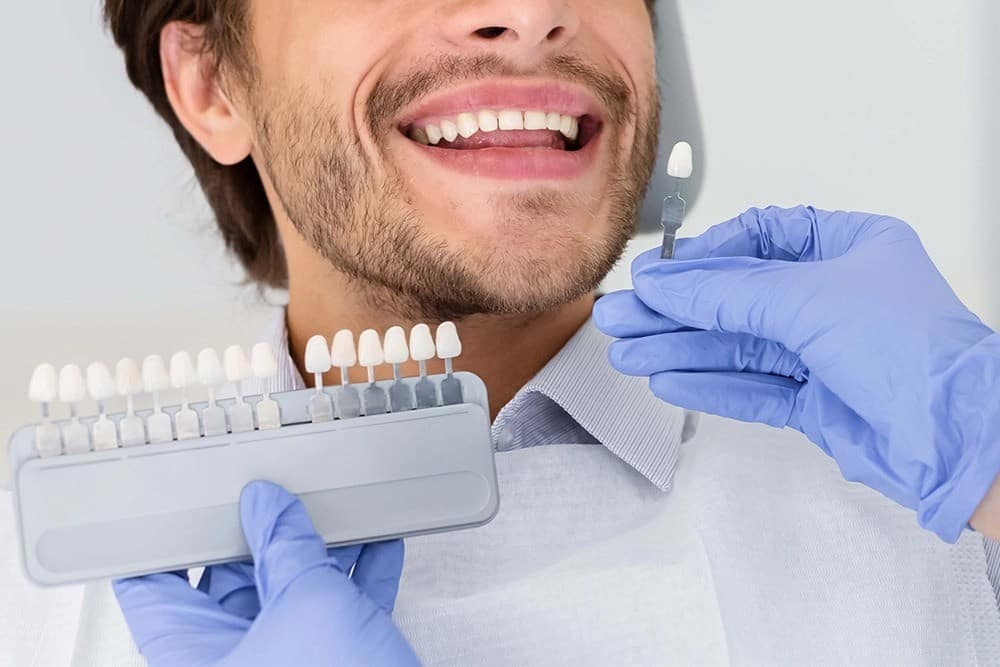Popular options for treating large cavities where the remaining tooth cannot support a Filling or Onlay include porcelain and zirconia crowns. Regardless of the material used to create each crown, the fundamental technique is the same for porcelain and zirconia crowns.
Porcelain's characteristics
Porcelain crowns have been a staple of the dental industry since the late 19th century. They are made from ceramic, which is composed of materials like mica, silica, and Lucite. The following are some essential qualities of porcelain for dental crowns:
produces the most beautiful and natural-looking cosmetic outcome.
Typically, less tooth preparation is required.
Most frequently chosen for front teeth because they experience less pressure and wear Lessens temperature sensitivity because it conducts heat or cold poorly patients with metal sensitivity must be tested
Zirconia's characteristics
The 1990s saw a significant increase in the usage of zirconia crowns. 90% of it is zirconium oxide, giving it a special strength and biocompatibility. Among the crucial characteristics of zirconia crowns are:
resistant to discoloration, chipping, and cracking
Safe, biocompatible substance that doesn't make patients metal-sensitive
A smooth surface reduces the risk of damage to nearby teeth and gum tissue.
Brightly colored and transparent
gives the teeth the most realistic appearance possible.
Zirconia vs. Porcelain Crown During the Procedure: What to Expect
Patients should prepare to have two separate visits for their porcelain or zirconia crowns. The dentist will prepare the tooth during the first appointment, which may involve some enamel sculpting. The decay from the cavity will also be removed by the dentist. Your dental imprint will be made, sent to the lab, and then the tooth will be cleaned and shaped. Your porcelain or zirconia crown will be specially made to fit you. At the time of your second appointment, the dentist will place the crown above your original tooth. Your dentist will make any last adjustments to your crown's size and form before firmly cementing it onto your tooth.
Zirconia crowns: Are they safe?
Zirconia crowns are secure, durable, and unbreakable. A person would also not have to worry about the zirconia crown causing an allergic response. In actuality, anterior crowns are the greatest candidates.
A zirconia crown could break.
Zirconia crown is unbreakable due to its metamorphosis and toughening. Typically, this kind of crown doesn't develop cracks.
Zirconia crowns may be allergenic to certain people.
Little, there is nearly no danger of an allergic reaction to zirconia crowns. However, to be on the safe side, address your worries regarding an allergic reaction to zirconia crowns with your dentist and be tested for it.
Which toothpaste is ideal for porcelain crowns?
Fluoridated non-abrasive toothpaste is appropriate for porcelain crowns.
Can porcelain crowns be polished?
Crown surfaces that have recently been polished may have lost fluoride-rich enamel layers. The color of your natural teeth is used to match the color of the porcelain crowns, and cleaning exposed dentin may make them more sensitive. Consequently, polishing porcelain crowns is not recommended.
Do porcelain crowns become stained?
Porcelain crowns ought to remain colorless if you practice good dental hygiene. However, with time, stains may appear on the crowns if the porcelain's finish is compromised.
Can you take off a zirconia crown?
Zirconia crowns can seldom ever be removed without damaging the tooth preparations. Why would you need to remove them when you are getting zirconia to enhance oral health?
How can porcelain crowns be made whiter?
To whiten porcelain crowns, wash your teeth twice day and practice good dental hygiene. If you have porcelain crowns, it is best to talk to your dentist before utilizing teeth whitening products.
© Copyright 2022

